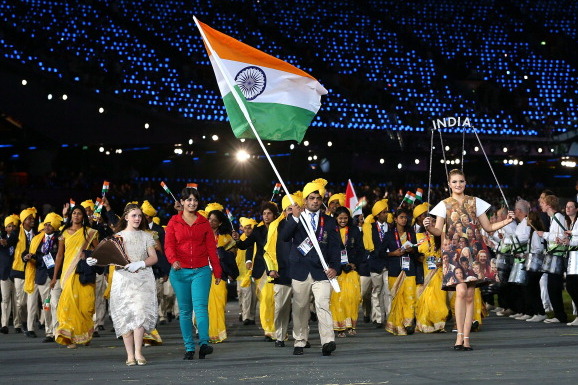India first participated at the Olympic Games in 1900. The nation first sent a team to the Summer Olympic Games in 1920, and has participated in every Summer Games since then. India has also competed at several Winter Olympic Games beginning in 1964. In all, Indian athletes have won 28 medals, all at the Summer Games. As the editions went by the number of athletes participating in the Olympics grew. With just 5 members in two disciplines in 1920, it grew to a staggering 117 members across 15 events in 2016.
It all started in 1900. India sent its first athlete to the Summer Olympics. Norman Pritchard was a British-Indian sportsperson
Then for a period of time, India national field hockey team was dominant in Olympic competition, winning eleven medals in twelve Olympics between 1920 and 1980. The run included 8 gold medals total and six successive gold medals from 1928–1956. It was a golden period not just for hockey but Indian sports in general as the likes of the legendary Dhyan Chand and Balwant Singh ruled the roost. They stood on the podium to the general bewilderment of Adolf Hitler in Berlin. They gave an inferiority complex to Western countries whose idea of field hockey developed after encountering bewitching Indian men. In 1928, the team won its first Olympic gold medal and until 1960, the Indian men’s team remained unbeaten in the Olympics, winning six gold medals in a row. The team had a 30–0 winning streak during this time, from their first game until losing in the 1960 gold medal final.
It was Khashaba Jadhav from Maharashtra who created history at the 1952 Summer Olympics in Helsinki. He became the first athlete from independent India to win an individual medal in the Olympics. The wrestler struck bronze & etched his name forever in Indian Sports history. Khashaba was extremely nimble on his feet, which made him different from other wrestlers of his time. English coach Rees Gardner saw this trait in him and trained him prior to the 1948 Olympic Games. Khashaba’s colleague, Krishnarao Mangave a wrestler, also participated in the same Olympics in another category but missed the bronze medal by just one point. In the 1996 Olympic Games, Leander Paes was not amongst the player who had a good ranking, He entered the tournament, but there weren’t many expectations from him. Paes absolutely excelled at the tournament. He would eventually face then World No. 1 Andre Agassi in the semi-finals; losing to Agassi 7-6, 6-3, before overpowering Brazil’s Fernando Meligeni in three sets to win what was India’s first individual Olympic medal in 44 years.
Karnam Malleswari made history in 2000 at Sydney by becoming the first ever Indian woman to win a medal at the Olympic Games. She bagged the bronze. The then-25-year-old lifted 110kg in the snatch and 130kg in the clean-and-jerk to lift a total of 240kg, the third-best at that year’s Olympics. She had gone through many difficulties in finding the proper training and being a record breaker in a sport that was never considered traditionally ‘female’ in India. The 2004 Olympics was marked by India’s first ever individual silver medal by Rajyavardhan Singh Rathore. He stood on the podium after finishing second in the men’s double trap at the 2004 Athens Games. A year before he created Olympic history, Rathore had won a silver medal at the 2003 World Championships in Sydney.
The 2008 Beijing event brought the promise of a new era for Indian Olympics. For the first time in history, the country had won 3 individual medals at the Olympics. Abhinav Bindra created history by owning the first individual gold medal by winning the men’s 10m air rifle shooting event. It was also India’s first gold medal since 1980, when the Men’s Field Hockey Team won the gold. He is the first Indian to have held concurrently the World and Olympic titles for the Men’s 10 meters air rifle event: 2008 Summer Olympics and the 2006 ISSF World Shooting Championships. Bindra’s heroics where supported by Vijender Singh who won bronze in the middleweight boxing category. And Sushil Kumar who won bronze in Men’s freestyle wrestling in the 66 kg category.
London 2012 became the epitome of success with respect to the number of medals for India at the Olympics. There were 6 in total, with successes in Shooting, Wrestling, Boxing & Badminton. Vijay Kumar & Gagan Narang won a silver & bronze medal respectively in shooting events. Sushil Kumar & Yogeshwar Dutt excelled in wrestling. While Saina Nehwal & Mary Kom won bronze at badminton & boxing. Rio 2016 was highlighted by PV Sindhu’s silver in badminton singles & Sakshi Malik’s bronze in the women’s freestyle 58 kg wrestling event. With the Coronavirus COVID 19 outbreak, reports in the media are indicating that the 2020 Tokyo Olympics might be postponed to next year. Let’s hope the Indian contingent takes strides & makes it the most successful campaign ever!
![]()

